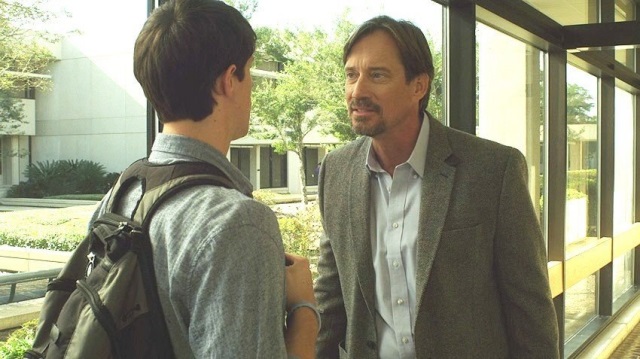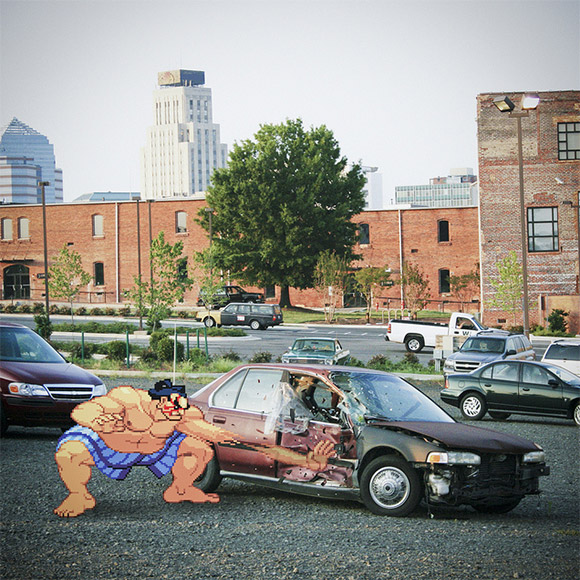Last updated on April 10, 2014
The real trouble with this world of ours is not that it is an unreasonable world, nor even that it is a reasonable one. The commonest kind of trouble is that it is nearly reasonable, but not quite. Life is not an illogicality; yet it is a trap for logicians. It looks just a little more mathematical and regular than it is; its exactitude is obvious, but its inexactitude is hidden; its wildness lies in wait.
– G.K. Chesterton, Orthodoxy
In sum, then, the problem as described in the earlier entry is two things: games are closed systems, and life is an open system. A closed system is, simply put, more fun because human beings easily perceive the inner workings of something designed by fellow human beings. Open systems like life in general and Christianity often do not provide the same sort of “thrill” just by the nature of their existence. That doesn’t mean that God has no plan, but the divide between God and human makes that a difficult notion.
Putting the “Christian” Into “Games”?
The problem isn’t that video games cannot be “Christian”; it’s that, for them to be “Christian” in exemplifying those ideas, they must remove everything great and wonderful about them. When we talk of finding God in the games industry, that means turning video games into vessels for discovering God. I understand that impulse too, to turn video games into a God-pleasing vehicle, but I find that games are actually quite ideal as they are.
Think of it in this way: disempowerment isn’t fun. Suffering isn’t fun. Death isn’t fun. Sorrow and grieving are not fun. These elements endemic to human life exist in other mediums, absolutely. However, in those we experience such things vicariously, attempting to inject ourselves into the experience. Perhaps we also might add our own memories to these experiences as well. These provoke feelings, sure, but they’re still reflecting our vision of reality as controlled by the author. The author uses the whims of the dramatic arc, the realm of story, to control our emotive response to it. Since we all view reality as a story with Me, Myself, and I as the main characters (another psychological need), it’s not a stretch by any means.
Video games, on the other hand, are extremely adept at doing “fun”, more so than any other “art” ever created. The ability to interact with a set of rules, overcome challenges, and strive towards a predetermined goal as an active participant remained its modus operandi from the beginning. Games as they are, are awesome, and make you feel awesome in the process of mastery. Removing this will not make them more Christ-like. Making them more like reality, or making reality more like games, will not Christianize them any more than turning Kevin Sorbo into an oppressive philosophy professor will make God’s Not Dead an accurate depiction of academic apologetics.
Contrasting With the Real
What, then, do I mean? I mean to say that literature does not directly state truths about reality: it states truths that we think about reality. Since Christians know that we do not hold all the answers, then we shouldn’t expect those answers to arise in a rationally cognitive way, nor in an emotionally expressive way. Video games provide a contrast to reality as a minor form of escapism. To qualify this statement will require some doing.
All people were raised by someone somewhere. Each child learned a set of rules to which they must abide. Violating unwritten rules would make those rules explicit, and we learned this either via parenting or experience. These rules gave you the framework, not to understand reality, but to experience wonder and awe without the hangups of adult existence. With structure, with rules, with a clear sense of reality, you can see things as they are, rather than as they should be. And things as they are should amaze us. Creation should amaze us. Think of video games as an expression of that same awe given digital form.
These rules continued into schools, which have their own sets of rules that turn more specific. By the time you get to the age of eighteen, at least in the Western world, now you are prepared…to learn that many of those rules suddenly don’t apply at all, and life was definitely more complicated outside the cocoon than within it. And then suddenly, you might feel the inclination to return to that childlike wonder you once knew and felt. So think of it in the vein of Matthew 19:13-15
Then some children were brought to Him so that He might lay His hands on them and pray; and the disciples rebuked them. 14 But Jesus said, “Let the children alone, and do not hinder them from coming to Me; for the kingdom of heaven belongs to such as these.” 15 After laying His hands on them, He departed from there.
Children were not exactly respect in those times as they are in the developed first world countries. They couldn’t work at manual labor until a certain age, and all they did was take up resources. However, in time, they would be useful so they kept them alive. Jesus says, by contrast, that their low status meant nothing, and that their excitement and devotion really means much to the Kingdom of God. We need that structure to see the breadth of God’s reality.
How many worlds, how many different existence, have I traversed in video games? I cannot say; probably too many! It is by seeing the world structured that we can then see the world as it is: wild, crazy, and insane. Only God could make a reality like this. I need video games to remind me of that. Their structure, seams, and rules make it easier to see God’s creation in a fuller light. When I walk away from them, I find myself with a better appreciation of everything around me, They are a benefit, not a detriment. They cannot contain the fullness of reality, nor should they. If they did, they’d be a poor representation of it at best, and misleading to us at worst.

Conclusions
At base, real life isn’t boring. You just need to see the human versions of reality – i.e., video games – to show us how vivacious it really is. We should not fear the change of reality; we should welcome it and see it in its right context. God made this, and we make that. Although our vision shows hints of God’s grace, God’s own reality shows it infinitely more.
Video games should be less like reality, so that we can see more of reality.


